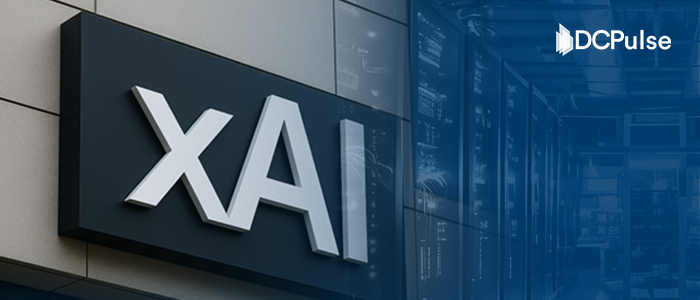Artificial intelligence is rapidly evolving into the most compute-hungry frontier of technology. In the race to scale AI infrastructure, Elon Musk’s xAI has emerged as a new force, aggressively exploring strategic partnerships across geopolitical lines.
Recent reports suggest the company is negotiating a major data center deal in Saudi Arabia, a move that signals not only xAI’s ambition but also the Middle East’s growing role in global AI compute strategy.
At the heart of this exploration is Saudi AI firm al-HumaiN, with which xAI is reportedly in talks. While details remain tentative, the prospect of locating AI-intensive infrastructure in the Kingdom has opened up a broader conversation about the convergence of politics, energy, and next-generation compute demands.
xAI: A New Challenger with Big Ambitions
Founded in 2023, xAI has been pitched as Musk’s answer to OpenAI, a more open, less censorial platform for artificial general intelligence (AGI) development.
With backing from Musk’s personal wealth and strategic access to Tesla’s and SpaceX’s compute resources, the firm aims to build models that rival GPT-4 and beyond.
Its flagship chatbot, Grok, is already integrated into the X (formerly Twitter) platform.
While still a nascent player compared to Google DeepMind or OpenAI, xAI’s ambitions are hardly modest.
Musk has previously stated he intends to “understand the true nature of the universe” through AGI, and this requires enormous compute power, hence the push toward sovereign-grade data center capacity.
“AI is the most transformative force in technology today, and we need to understand it fully to ensure it aligns with human values,” Musk said at a recent xAI launch event. “That requires serious compute, not just access, but sovereignty.”
Why Saudi Arabia?
Saudi Arabia is positioning itself as a new hub for high-performance AI infrastructure. The nation’s Vision 2030 roadmap, championed by Crown Prince Mohammed bin Salman, is focused on diversifying its economy through digital transformation.
The Public Investment Fund (PIF) has committed over $424 billion to futuristic technologies, including AI.
Moreover, electricity in Saudi Arabia is among the cheapest globally, ranging between USD 0.02 to USD 0.05/kWh, compared to USD 0.10 to USD 0.15 in Europe or the U.S. For AI models trained on tens of thousands of GPUs, this cost advantage is enormous.
“Saudi Arabia is uniquely positioned to be a leader in digital infrastructure,” said Eng. Osama Al-Zamil, Saudi Deputy Minister of Industry and Mineral Resources. “Our energy cost advantage and commitment to innovation make us a natural destination for future tech investments.”
The Kingdom is also investing heavily in data center infrastructure. A recent example is NEOM, Saudi Arabia’s USD 500 billion futuristic smart city project, designed as a sprawling, tech-driven development powered entirely by clean energy. In partnership with ZeroPoint DC, NEOM’s flagship data center initiative, the project aims to build a 1.3 GW hyperscale facility powered by green hydrogen and solar energy.
“NEOM’s ZeroPoint DC will be the largest, most sustainable data center campus in the region,” said David Griffin, CEO of ZeroPoint DC. “We’re building this to meet the rising demands of AI, cloud, and sovereign compute infrastructure.”
This AI-ready backbone will support high-performance computing, cloud services, and emerging digital ecosystems across the region.
Such projects illustrate Saudi Arabia’s infrastructure-readiness and its aspiration to be more than just a petroleum giant.
A CTO Digital report estimates that if a 2GW data center is fuelled by natural gas in Saudi Arabia, it could emit 5 million tons of carbon annually. This raises serious environmental concerns, especially when paired with high water usage.
According to Abdulelah Al-Shehri of King Saud University, Saudi data centers consume 2.3 to 2.8 liters of water per kWh, adding up to over 6.7 million m³/year, enough for 160,000 households.
The Role of Political Goodwill
Musk’s potential alignment with Saudi Arabia is not incidental. Political goodwill between the Kingdom and the U.S., particularly leaders whose policies favor private enterprise and tech collaboration, has made it easier for American tech companies to enter the market.
Elon Musk has maintained friendly relations with former President Donald Trump, a factor that could play into ongoing and future U.S.-Saudi tech diplomacy.
Saudi Arabia, for its part, has deepened partnerships with American firms like Microsoft, Oracle, and Google Cloud in recent years, all of which have committed to building data center regions in the country.
Even amid past tensions, such as Musk’s public fallout with Saudi investors over Tesla’s privatization in 2018, this latest development suggests pragmatism is prevailing. If xAI proceeds with this deal, it may underscore a new chapter in Musk’s Gulf diplomacy.
Al-HumaiN and the Mystery Partner
Reports mention xAI is in talks with a second, undisclosed local firm besides Al-HumaiN. While the identity remains anonymous, it’s speculated that the partner may be a private subsidiary aligned with either the Saudi Ministry of Investment or a PIF-backed entity with experience in data center management.
Some analysts believe the second player could be acting as an intermediary for regulatory or operational enablement, possibly shielding sovereign stakeholders from early-stage risk.
Until details are disclosed, this part of the story remains speculative, but worth watching closely.
UAE Angle: Stargate, G42, and Musk’s Broader Middle East Strategy
xAI’s interest in the region is not limited to Saudi Arabia. The company has also been in contact with Abu Dhabi-based G42, a key AI firm in the UAE known for its rapid scaling and deep-pocketed backers.
G42 is spearheading a USD 1 billion project called Stargate, a 10-square-mile AI data center zone powered by 1GW of electricity, slated for launch in 2026. Partners include OpenAI, Nvidia, Oracle, and Cisco.
“G42 is proud to lead the way in building the Middle East’s AI backbone,” said Peng Xiao, Group CEO of G42. “Projects like Stargate demonstrate the UAE’s global ambitions in supercomputing and sovereign AI.”
According to The Wall Street Journal, Musk lobbied to have xAI included in Stargate during discussions aligned with Donald Trump’s diplomatic overtures to Abu Dhabi.
While OpenAI eventually won the bid, the move signals Musk’s regional intentions, and his willingness to compete head-on with American peers for access to next-gen AI infrastructure
Environmental Oversight and AI Infrastructure Risks
While the Middle East offers political and economic incentives, environmental factors complicate the equation. Large-scale data centers in water-stressed regions like Saudi Arabia and the UAE may accelerate resource depletion, especially if not offset by renewables.
Saudi Arabia’s data center carbon emissions could dwarf those in Europe or North America if gas-fired power dominates the grid. And while solar adoption is on the rise, cooling and water treatment for AI workloads remain significant ecological challenges.
“Saudi Arabia’s water-stressed environment makes traditional data centers a major concern,” noted Prof. Abdulelah Al-Shehri, an environmental engineering expert at King Saud University. “Without sustainable cooling solutions, their impact could rival that of heavy industry.”
The push toward AI sovereignty may risk undermining sustainability goals unless rigorously planned. As such, any xAI expansion must be viewed through a dual lens of geopolitical opportunity and environmental accountability.
What’s Next?
Though no deal has been finalized, Musk’s expanding footprint in the Gulf reflects a broader reshaping of global AI infrastructure.
With the U.S. tightening chip exports and China developing its domestic alternatives, neutral, resource-rich states like Saudi Arabia and the UAE are becoming critical staging grounds for AI model training and deployment.
The Kingdom’s low energy costs, sovereign capital, and political alignment make it ideal for such high-stakes infrastructure plays. And for xAI, a company racing to rival OpenAI’s scale, planting a flag in the Gulf could offer not just a tactical edge, but a geopolitical one.
As the story unfolds, expect xAI’s moves in the Middle East to become a bellwether for how private AI ambition intersects with national agendas, global energy politics, and environmental stewardship.
Conclusion: A New Axis of AI Power
Elon Musk’s xAI expansion into Saudi Arabia, and potentially the UAE, is more than a real estate deal for data centers. It’s the emergence of a new axis of AI power, one that aligns strategic capital, energy abundance, and national ambition in regions historically peripheral to Silicon Valley’s dominance.
By choosing to anchor compute-intensive operations in the Gulf, xAI isn’t just chasing resources; it’s shaping the next chapter of AI infrastructure geopolitics.
Saudi Arabia, in turn, is betting that AI, not just oil, can fuel its global relevance for decades to come.
If successful, this partnership could catalyse a rebalancing of AI's global center of gravity, away from familiar hubs in California and Shenzhen, and toward Riyadh, Abu Dhabi, and beyond.
And in a world where compute is the new oil, the desert may soon become the wellspring of the AI era.





